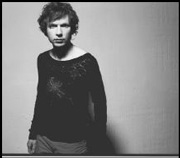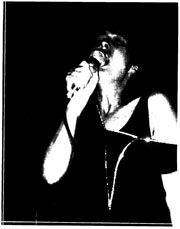BECK
FLAMING LIPS
Benaroya Hall, 206-628-0888, $35
8 p.m. Sat., Nov. 30
THEY SAY THAT once the universe stops expanding, it’ll start collapsing back on itself (at least that’s how I remember it from astronomy class). As the Big Bang goes, so goes Beck Hansen. Since 1993, Beck has stretched the bounds of his own musical cosmos from hip-hop to country rock to psychedelia to funk and beyond. But on his latest disc, Sea Change, he attempts to chart relatively unexplored territory: his own inner space. Over musical backdrops as sparse and open as the desert, Beck crafts tales of heartbreak in simple, direct terms. A lachrymose song cycle inspired by the breakup of a nine-year romance, the album has no place for clever phrases—every inch is consumed with aching.
On Saturday, he plays Benaroya Hall with modern psych masters Flaming Lips opening; the group will also serve as his backing band. Beck took time out to talk with the Weekly not long after his last Seattle show, at the Moore Theatre in August.
Seattle Weekly: Bob Dylan was very successful at migrating between different styles and presentation, particularly between ’62 and ’75. How do you look at that career? You’ve obviously migrated yourself a lot from album to album.
Beck Hansen: I think he was able to do whatever he wanted to do because he always wrote good songs, and he was always honest about what he was doing. He did exactly what he felt. When you allow yourself to do that, it’s obvious to people. They recognize that. If the drum machine’s inspiring you, that’s where you gotta go. It’s not really out of a need to be contrary or flippant. It’s just purely about what physically turns you on at the moment. But I don’t think he was the only one. The Beatles did everything from vaudeville-esque to acid rock. I think any of the more interesting artists have a lot of diversity in their music and their sound. But they always wrote good songs. If there’s anything I aspire to do, it’s just to write good songs. Or songs that have a good idea, interesting sounding.
A song like “Lost Cause”—there’s two responses it draws out of me. On one hand, it feels like the person singing it must feel so drained . . .
You know I’m not really interested in the interpretation, but if you want to ask me a question about the song— I mean the song is a pretty simple, direct ballad. . . .
What I was trying to ask was, when you write songs like this, is it draining?
Well it’s good writing a song—yeah, I understand what you’re saying. It’s kind of a clich餠idea, but you’re able to transmute something from diurnal experience into something that feels—it’s in an aesthetic realm. It feels good—it’s like being able to get something off your chest. It always feels better to say something.
Can you talk about presenting this material live?
I’m playing different songs. A lot from Mutations and random B-sides. Songs I don’t usually get to play in the shows when we’re playing in a festival and we only have 50 minutes. These are the kind of shows where we can let it go as long as we feel like. There’s a lot of improvisation, we’re doing a lot of cover songs. Every other night, I pick a new cover, a couple of new songs to play. And there’s a lot of conversation with the audience. People are laughing through about half of the show, so it’s not—we don’t get up and do heavy songs. We’re playing these beautiful theaters, but the show is not too reverent. Just kind of relaxed and conversational. Occasionally I’ll make up songs about what’s going on in the show or what’s going on in the city at the time.
The new songs that you’re playing, the emotion is very direct. Are people receiving it well?
Yeah, it’s all been positive. I’ve gotten a lot of encouragement from my fans and friends in the last three or four years to do things more in this direction. Mutations was something I really wanted to do. I didn’t really think it would be all that interesting to people. And their response to that was surprising. The people I worked with, they always downplayed those songs, and whenever I pulled out the acoustic guitar it would always be the shortest part of the set. Now I’m just taking the opportunity and chance to dig into this material.









